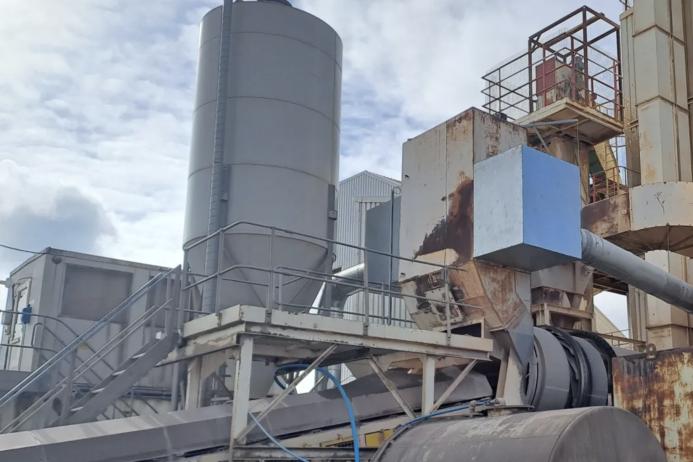Waste heat efficiency roll-out helping to reduce carbon emissions
Aggregate Industries commence implementation of waste heat recovery systems at three asphalt plants
AGGREGATE Industries have implemented waste heat recovery systems at three of their UK asphalt plants, commencing the company’s goal of 10 implementations by the end of 2024 and saving a total estimated 1,000 tonnes of CO2 per year.
Based on a thorough feasibility study of the recovery technology, conducted in collaboration with Invertec – a leading maintenance contractor specializing in energy efficiency, Aggregate Industries say they are committed to realizing the significant reduction in carbon emissions which can be achieved using these systems.
Currently implemented at the three active asphalt plants in Liverpool, Astley, and Darwen, the process focuses on harnessing waste heat from the asphalt manufacturing process to preheat air entering the dryer.
It involves:
Capturing waste heat – extracting thermal energy from the exhaust gases at the optimal locations
Pre-heating process – using captured thermal energy to preheat clean incoming air
Supplying the dryer – directing the preheated air into the dryer to raise the thermal efficiency of the process.
Rory Fulwell, decarbonization engineer at Aggregate Industries, said: ‘By capturing and utilizing otherwise wasted heat from the dryer exhaust, we can raise the thermal efficiency of the process and reduce fuel consumption and thus carbon emissions.
‘These simple systems can be retrofitted to most designs of asphalt plant, with potential efficiency gains modelled prior to installation using bespoke data-collection and modelling tools.’
Already, the active sites have demonstrated promising results, with a 12–15% improvement in fuel consumption when compared with the previous year, with improvements expected to stabilise between 6–10% over the course of the year.
Featuring an air-heat exchanger, the heat-recovery system has a semi-self-cleaning design to allow dust and debris to fall free of the exchanger, easy access for maintenance and cleaning, and minimal resistance to flow. Additionally, it includes an intake fan sized to match the blower fan on the burner, steel ducting, and a heat exchanger bypass valve.
Mr Fulwell added: ‘By recovering waste heat from the exhaust using a specially designed heat-exchanger system, we are enhancing the efficiency of the rotary dryer, which in most cases consumes up to 15 million kilowatt-hours annually. The new system aims to achieve a 10% reduction in fuel consumption, translating to significant carbon savings.
‘Using this technology helps us in achieving our Net Zero carbon strategy, putting us at the forefront of carbon management while reducing the impact of asphalt production on the planet.’










